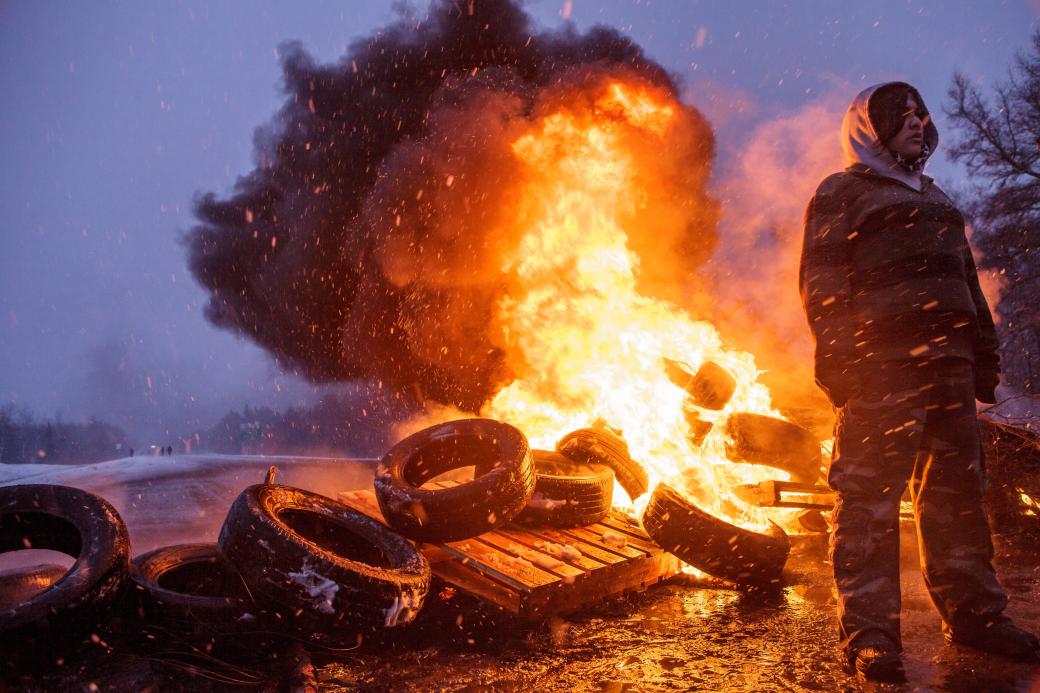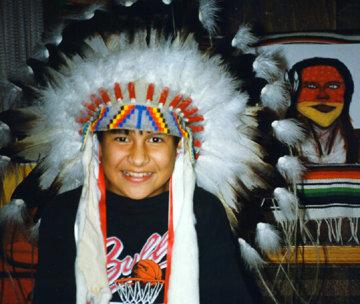Why Decolonize Thanksgiving

Photo: Merritt Thomas
I acknowledge that I reside in the homeland of the Muwekma Ohlone people who continue to live and thrive in the San Francisco Bay Area today. For most of my life, it never occurred to me to conduct a land acknowledgement during Thanksgiving. After all, the holiday was always about turkey, stuffing, family gatherings, and had a vague association with these people called “Pilgrims.” Like most Americans I had been indoctrinated into a whitewashed and largely false version of history. It was a narrative that was convenient to accept, but incredibly harmful to those who must endure the retelling of a holiday tradition with few truths.
Having directed and produced a film about false narratives created and perpetuated about my own community, I can empathize with Indigenous Native Americans and the burden that must accompany this holiday. It must be a particular challenge for the Wampanoag people, who resided on the East Coast of America for thousands of years before the first arrival of Europeans. While the initial contact between the Wampanoag people and the Pilgrims has been romanticized as a warm gathering and a wondrous Thanksgiving feast, the actual facts behind the relationship shed light on a much darker tale. What is often left out of this mythologized history are the traumatic events which eventually decimated the Wampanoag people. Though the "first Thanksgiving" of 1621 is characterized as a symbol of hopeful alliance, the true story involves the spread of disease, colonial land acquisition, forced cultural assimilation and exploitation of the earth's resources.

What is seldom acknowledged around the Thanksgiving dinner table is the tensions that grew between the Wampanoag people and the English that would eventually ignite into a war that ushered in the unabated European colonization of Native American lands. While most today continue to embrace this holiday to give “thanks,” for the Wampanoag people (and all indigenous people of Turtle Island), Thanksgiving is understandably a day of mourning when they acknowledge the beginning of the end for their way of life in what is now America.
While there are some in this country who believe that teaching the truth about American history is unpatriotic, there is a growing call to reflect upon and examine our past misdeeds. Given the degree to which Thanksgiving is embedded in American culture, how are we to reconcile the inconvenient truth of this holiday? Members of Indigenous Native communities such as the Ohlone have chosen to embrace the time with loved ones, while rejecting the colonialism of the holiday. Some ideas from the Ohlone to decolonize Thanksgiving include: conducting a land acknowledge for the Native land where you currently reside, use present-tense verbs when describing the Indigenous Native people from your area, educate yourself on the issues affecting them in your area, and identify actions you can take to support Indigenous people in your community.

As we approach Thanksgiving in this tumultuous year, I urge educators to heed the call from Indigenous people to bring truth to their classroom. New Day has important films in its collection which can raise awareness of Indigenous people, their culture, and the urgent issues they face today. Water Warriors by Michael Premo is the story of a community’s successful fight to protect their water from the oil and natural gas industry. Shellmound by Andres Cediel is the story of a sacred shellmound, a burial site that predates the pyramids, which the Ohlone people are working to reclaim from the big box stores that occupy it. A Matter of Respect by Ellen Frankenstein is a stereotype-breaking documentary about the meaning of tradition and change as people speak frankly about the challenges they face balancing their lives in two cultures. Spirit of the Dawn by Heidi Schmidt Emberling explores the dramatic changes in education of Native children, from the boarding schools of the past, where children were beaten for speaking their language in school, to the more culturally-sensitive classrooms of today. And In Whose Honor by Jay Rosenstein takes a critical look at the long-running practice of "honoring" Native Americans as mascots and nicknames in sports.
These films and many others in New Day’s Ethnic Studies collection are invaluable tools which can help students critically examine America’s faults, learn from them, and understand how to build a more perfect union.